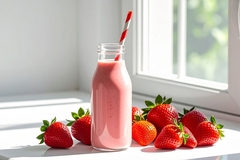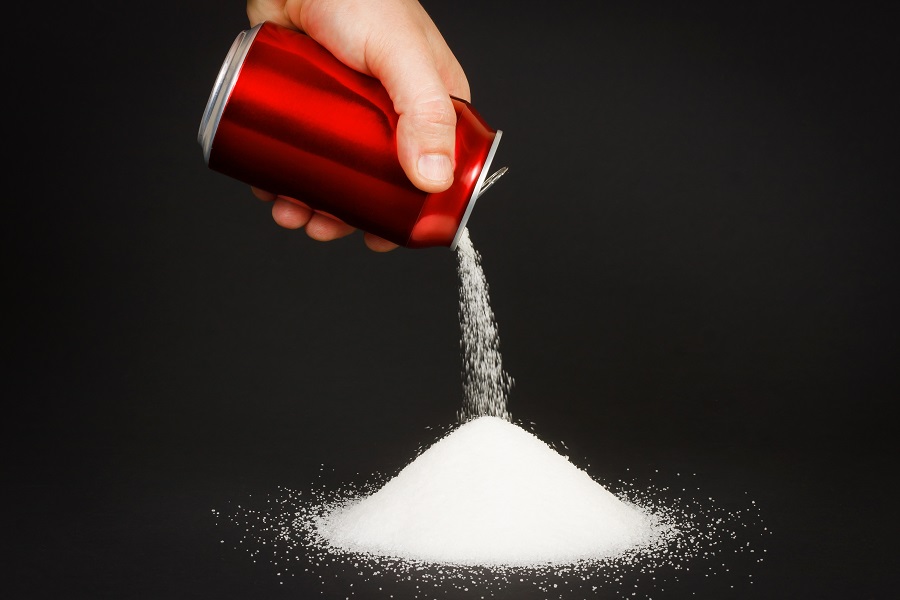UK expands soft drinks levy to high-sugar dairy beverages in national obesity battle
Key takeaways
- The UK is expanding its soft drinks levy to include high-sugar, pre-packaged milk-based and milk-alternative drinks to combat high national obesity rates.
- The government is lowering the sugar threshold for the levy and giving businesses until January 1, 2028, to reformulate products and reduce sugar content.
- The government is lowering the sugar threshold for the levy and giving businesses until January 1, 2028, to reformulate products and reduce sugar content.

Now having the third-highest rate of adult obesity in Europe according to government data, the UK has extended its soft drinks levy to encompass more high-sugar beverages. Businesses have until January 1, 2028, to reduce the amount of sugar in their drinks and prevent being charged.
Under the new regulations, charges will be applied to pre-packaged milk-based and milk-alternative drinks with high levels of added sugar, like supermarket milkshakes, flavored milks, sweetened yogurt drinks, chocolate milk drinks, and ready-to-drink coffees.
“Many of these products can contain as much added sugar as fizzy drinks, where much of that sugar is added separately to the milk, but were previously exempt from the levy, which so far has seen the average sugar content of drinks in scope fall almost 50% since it was introduced,” details a government statement.

Plain, unsweetened milk, and milk-alternative drinks are not included.
“The success of this policy won’t be about filling the black hole in the public finances; it will be whether industry will reformulate,” Eddie Crouch, chair at the British Dental Association.
“Voluntary action here has achieved nothing. But since it rolled out in 2018, the sugar levy has led industry to remove tens of thousands of tons of sugar from soft drinks. Tooth decay is the number one reason for hospital admissions among young children. This is precisely the time for the government to go further and faster with tried and tested policies.”
Sufficient reduction?
The UK government is lowering the sugar threshold from 5 g to 4.5 g of sugar per 100 ml in beverage products, so that high-sugar drinks will fall under the levy unless manufacturers reduce sugar content.
 The UK is lowering the sugar threshold from 5 g to 4.5 g of sugar per 100 ml in beverage products, so that high-sugar drinks will fall under the levy.Dr. Kawther Hashem, senior lecturer in Public Health Nutrition and Head of Research and Impact at Action on Salt and Sugar, comments: “We had hoped the government would go further. The consultation explored reducing the minimum sugar threshold to 4 g, so it’s unclear why this has now risen to 4.5 g.”
The UK is lowering the sugar threshold from 5 g to 4.5 g of sugar per 100 ml in beverage products, so that high-sugar drinks will fall under the levy.Dr. Kawther Hashem, senior lecturer in Public Health Nutrition and Head of Research and Impact at Action on Salt and Sugar, comments: “We had hoped the government would go further. The consultation explored reducing the minimum sugar threshold to 4 g, so it’s unclear why this has now risen to 4.5 g.”
“Our own submission showed a median sugar content of 4.2 g per 100 ml in soft drinks,” she continues. “We found nearly three-quarters of drinks already fall below 4 g per 100 ml, so the decision misses an opportunity to drive further meaningful reformulation.”
“We also called on the government to create a new upper tier for drinks exceeding 10 g of sugar per 100 ml, targeting the major brands that have refused to reduce sugar in their high sugar drinks. This would have prevented companies that choose not to reformulate from gaining an unfair advantage over those actively investing in sugar reduction.”
Lowered sugar threshold
The current soft drinks industry levy targets manufacturers and importers, which has led to many companies reducing sugar content in drinks to avoid the tax. The government expects companies to do the same with the extension.
Changes follow a government consultation from April to July 2025. The UK’s tax, payments, and customs authority has outlined the final policy in a formal response, available here.
The government expects the new plans will reduce daily calorie intake by around four million in children and 13 million in adults across the UK. It states this may prevent almost 14,000 cases of adult obesity and nearly 1,000 cases of childhood obesity.
High sugar intake puts children at greater risk of dental decay and obesity, while obese adults are at risk of long-term health conditions such as type 2 diabetes, heart disease, and some cancers. The UK National Health Service (NHS) reveals that the critical public health challenge of obesity alone has cost it £11.4 billion (US$15 billion) annually, which is three times its budget for ambulance services.
 Between 2015 and 2024, the levy has cut sugar levels in targeted products by almost half, according to government data.Between 2015 and 2024, the levy has cut sugar levels in targeted products by almost half, according to government data. Additionally, reports indicate that businesses have consistently experienced increased sales of drinks.
Between 2015 and 2024, the levy has cut sugar levels in targeted products by almost half, according to government data.Between 2015 and 2024, the levy has cut sugar levels in targeted products by almost half, according to government data. Additionally, reports indicate that businesses have consistently experienced increased sales of drinks.
According to comprehensive Department of Health and Social Care data, these products experienced a 13.5% increase in volume sales (liters) between 2015 and 2024, indicating strong consumer acceptance and the commercial appeal of healthier, reformulated beverages.
The government anticipates that the updated levy will yield nearly £1 billion (~US$1.3 billion) in health and economic benefits. It could potentially save the NHS up to £36 million (~US$47.4 billion), relieve social care pressures by £30 million (~US$39.5 million), and contribute around £221 million (~US$291.3 million) to the economy through improved workforce participation.
Policy-driven reformulation strategies
The update is part of a package of government measures aimed at tackling obesity and preventing heart disease, stroke, and cancer, and reflects a broader public awareness of the health detriment of processed foods. Next to sweetened beverages, a recent report found many snacks sold in the UK, branded as healthy, contain large quantities of sugar and saturated fat.
National initiatives to curb unhealthy eating include the introduction of a “healthy food standard” requiring food businesses, especially supermarkets, to meet a minimum target for healthy food sales.
The UK has also recently banned the sale of high-caffeine energy drinks to children aged under 16, while giving local authorities powers to stop fast food shops setting up outside schools.
“The soft drinks industry levy has already substantially reduced the sugar in soft drinks, lowering the amount of sugar consumed by children. Expanding it to include milk-based and milk-alternative drinks, which can contain large amounts of hidden sugar, is a welcome step forward,” says Helen Kirrane, head of Policy and Campaigns at Diabetes UK.
“We know that, for many people, it can be overwhelming to navigate such a wide range of products, and it’s not always clear what is good for us. This change will help ensure the healthier choice is the easier choice.”
Previously, Nutrition Insight’s sister platform Food Ingredients First spoke with several leading producers and suppliers to explore advances in the growing and evolving sweetener solutions arena.















